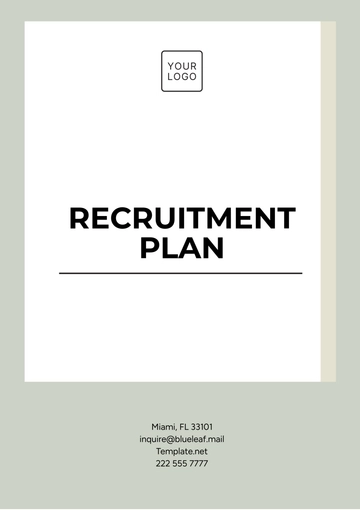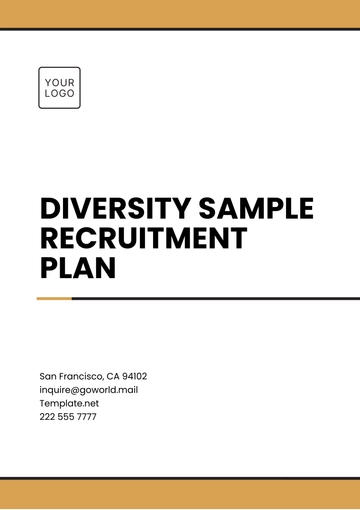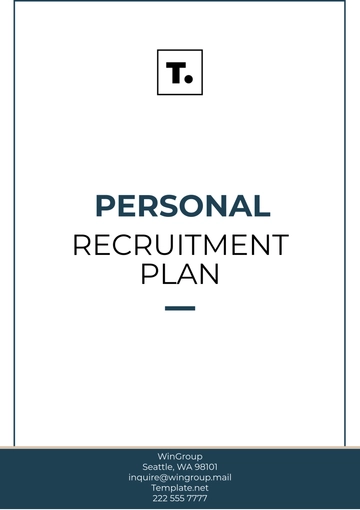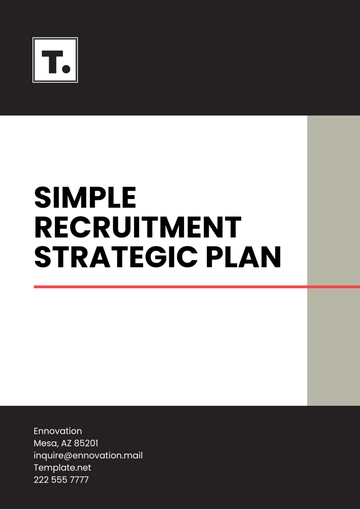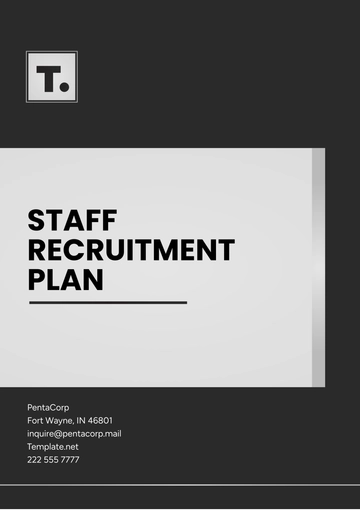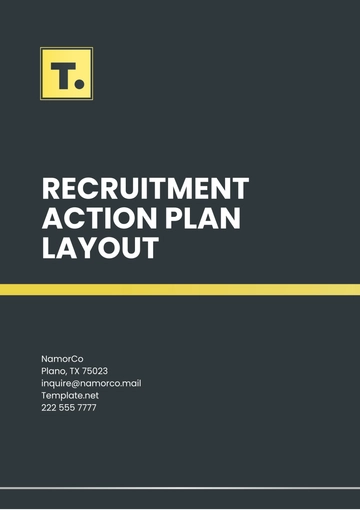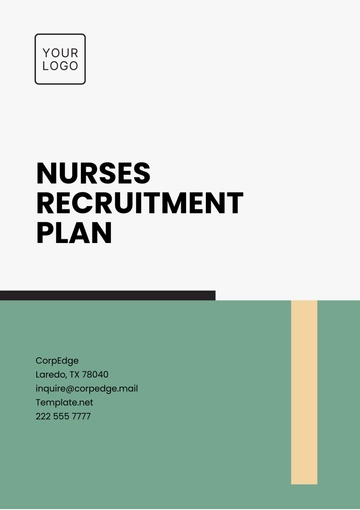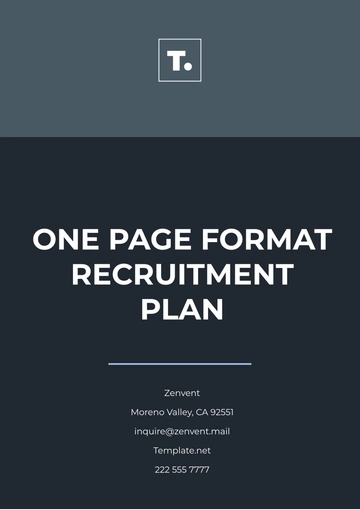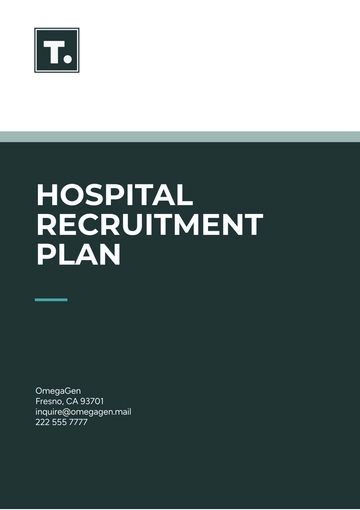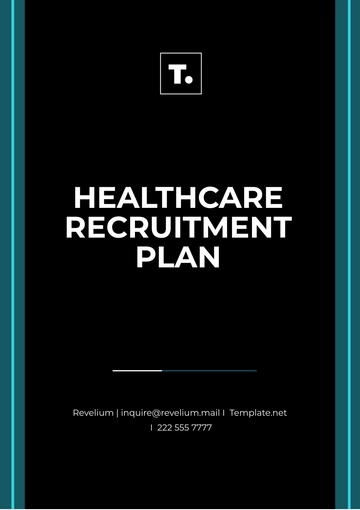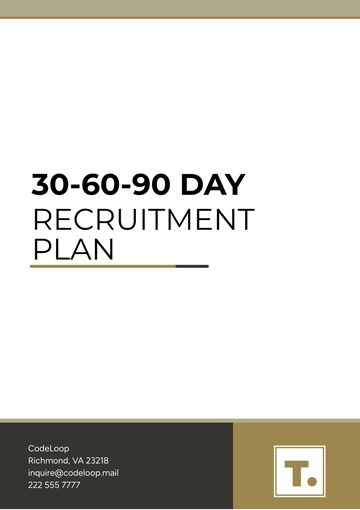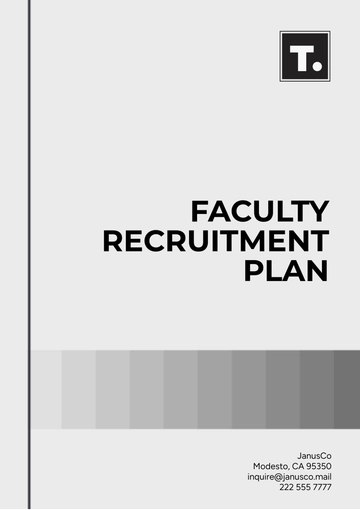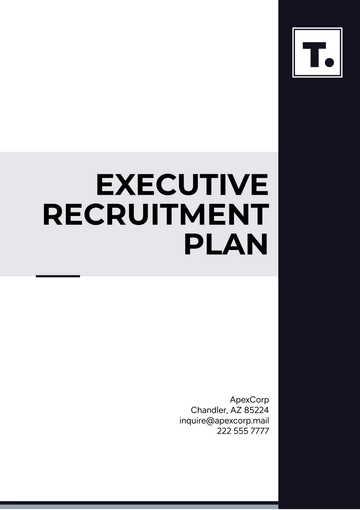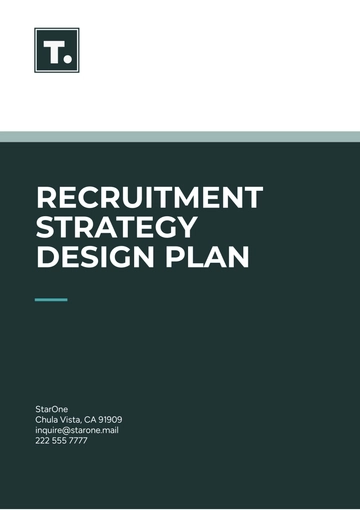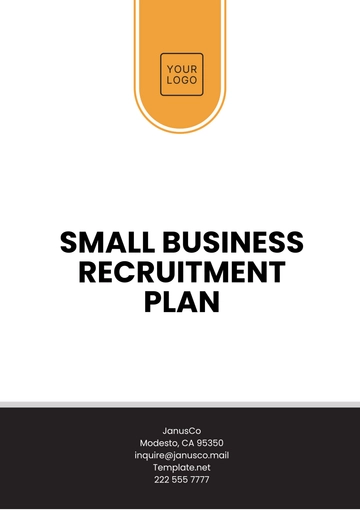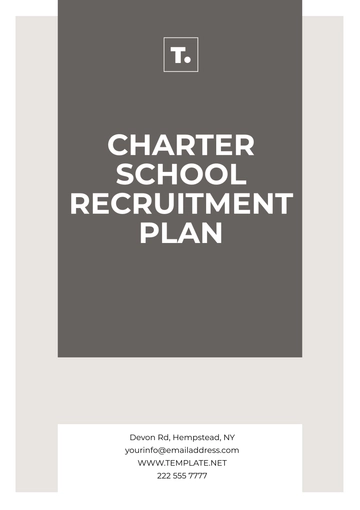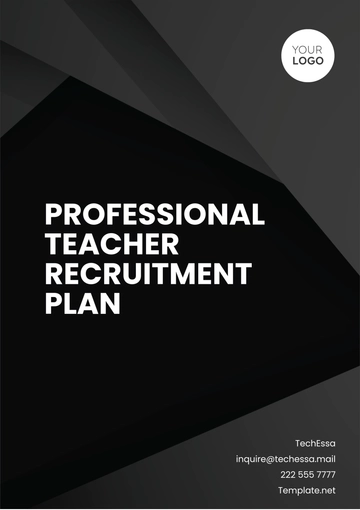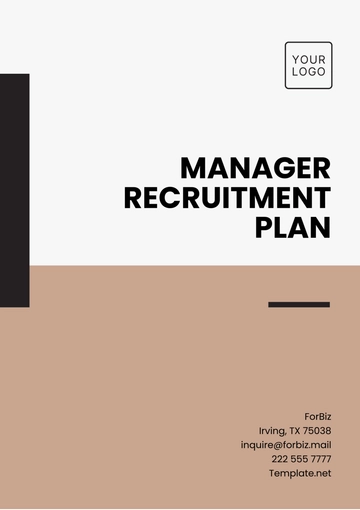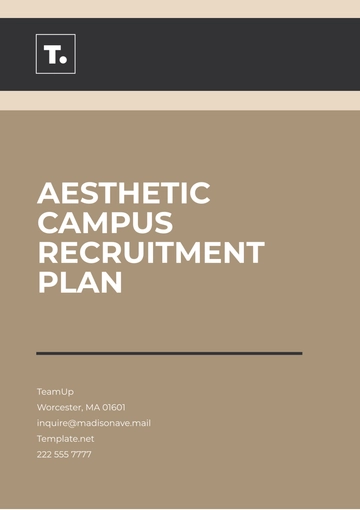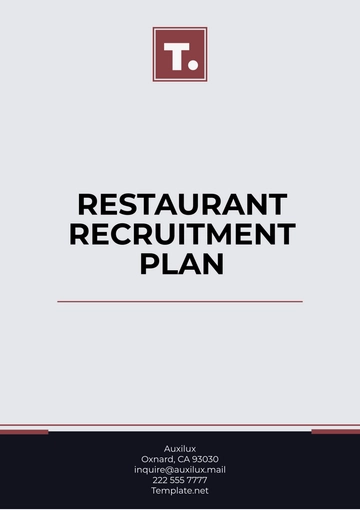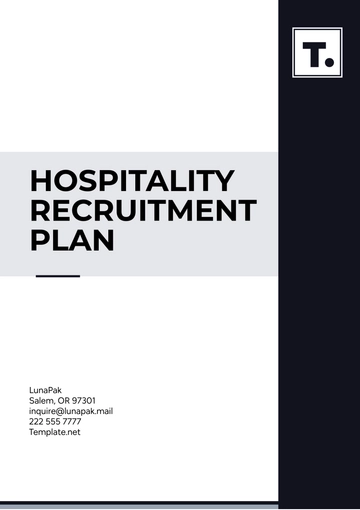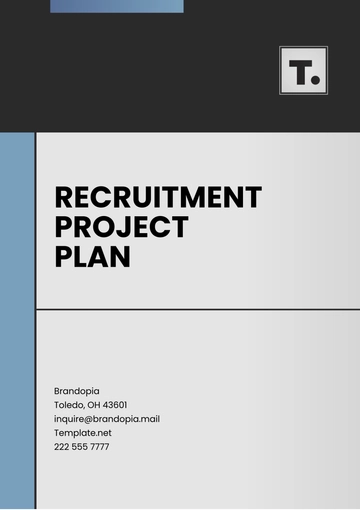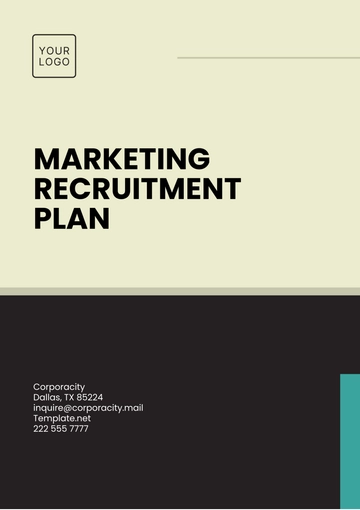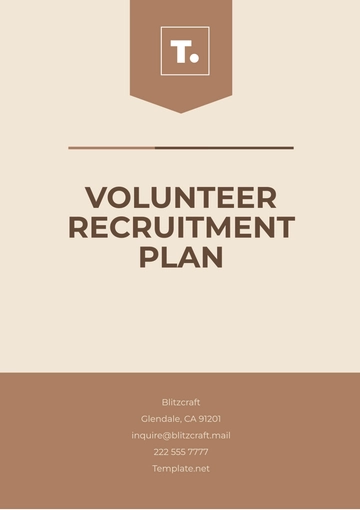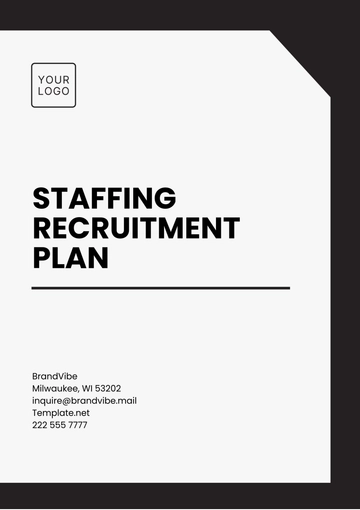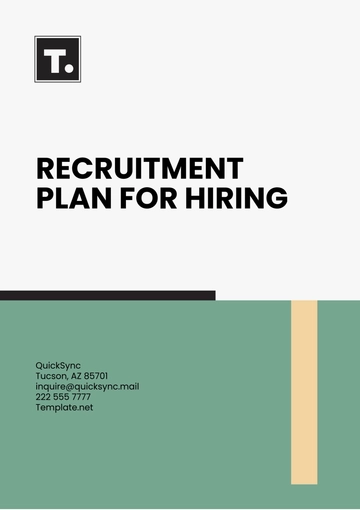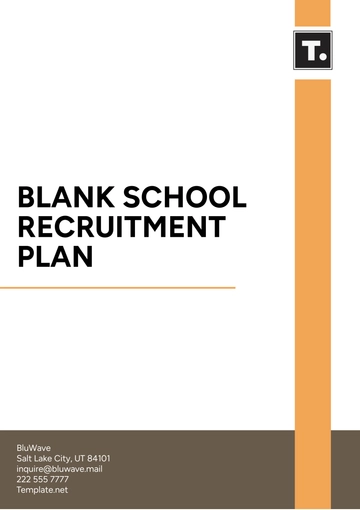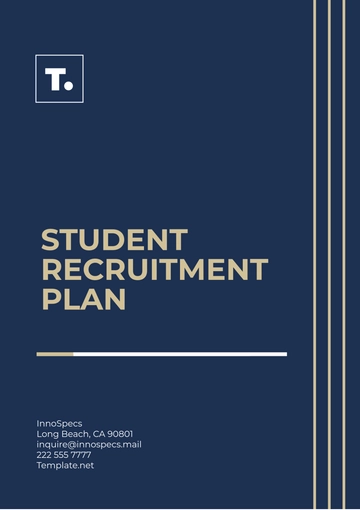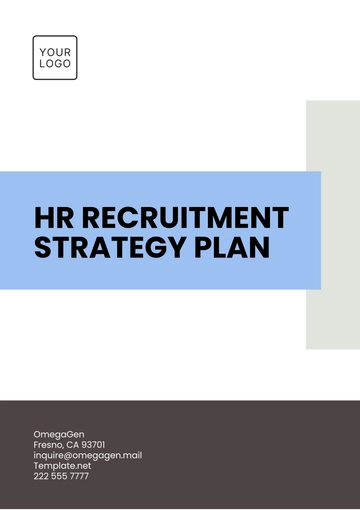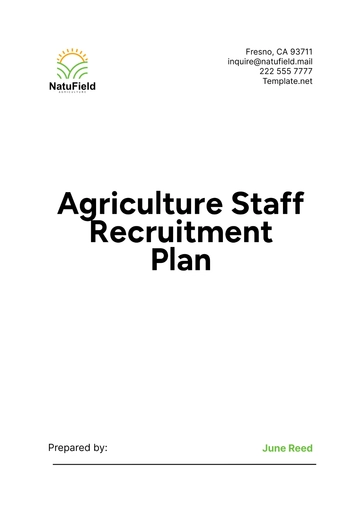Free Hospitality Recruitment Plan
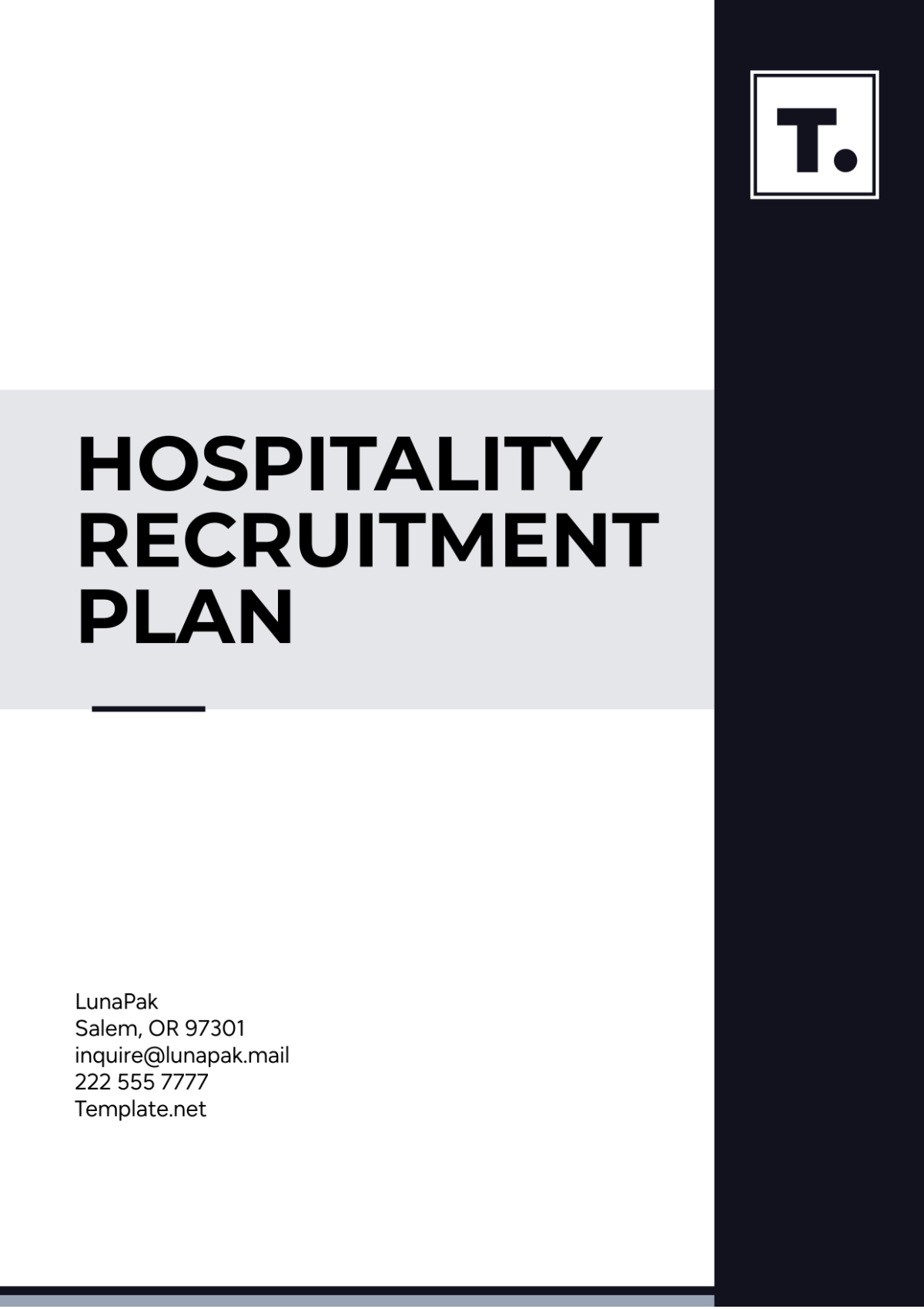
Prepared by: [YOUR NAME]
Company: [YOUR COMPANY NAME]
Date: [DATE]
1. Executive Summary
[Your Company Name] is committed to attracting and retaining top talent in the hospitality industry. This recruitment plan outlines our strategic approach to filling various positions within our organization, ensuring we maintain high standards of service and guest satisfaction.
2. Recruitment Objectives
Attract Qualified Candidates
Develop a comprehensive pool of skilled applicants who are well-aligned with our company culture and meet the specific job requirements we have established.
Enhance Diversity
Encourage the development of a diverse workforce in order to cultivate an environment that supports innovation and inclusivity.
Reduce Time-to-Hire
Optimize and enhance our recruitment procedures to ensure that vacancies are filled both rapidly and efficiently.
Improve Retention
Seek to employ individuals who possess a long-term vision and demonstrate a steadfast commitment to [Your Company Name].
3. Job Analysis and Descriptions
A. Position: Front Desk Manager
Responsibilities: Manage front desk operations, handle guest inquiries, oversee staff scheduling.
Qualifications: Bachelor’s degree in hospitality management, 3+ years of experience, excellent communication skills.
B. Position: Housekeeping Supervisor
Responsibilities: Supervise housekeeping staff, ensure cleanliness standards, manage inventory.
Qualifications: High school diploma, 2+ years of experience, strong leadership skills.
4. Recruitment Strategies
A. Internal Recruitment
Encourage the practice of promoting employees from within the organization as a strategy to retain talent and offer them opportunities for career advancement.
B. Employee Referrals
Encourage your existing employees to refer candidates who are well-qualified for open positions by implementing incentive programs that reward successful referrals.
C. Job Fairs and Campus Recruitment
Form partnerships with hospitality schools and actively participate in job fairs in order to identify and recruit emerging talent in the industry.
D. Online Job Portals
Publish the available job openings on widely-used job boards as well as on the website of our company.
E. Social Media Campaigns
Leverage the social media platforms to attract potential candidates and to actively promote and enhance the visibility of our employer brand.
5. Candidate Sourcing
Online Platforms: Utilize LinkedIn, Indeed, and other job portals to reach a broad audience.
Recruitment Agencies: Partner with agencies specializing in hospitality recruitment.
Networking Events: Attend industry events to connect with potential candidates.
6. Selection Process
Application Screening: Review resumes and cover letters to shortlist candidates.
Initial Interviews: Conduct phone or video interviews to assess basic qualifications.
In-Person Interviews: Arrange face-to-face interviews with key team members.
Skills Assessment: Administer relevant tests or practical tasks.
Background Checks: Verify references, work history, and conduct background checks.
Final Selection: Choose the best candidate and extend a job offer.
7. Onboarding and Training
Orientation Program: Introduce new hires to [Your Company Name]'s culture, policies, and procedures.
Training Schedule: Provide comprehensive training on job-specific tasks and customer service standards.
Mentorship: Pair new employees with experienced mentors for guidance and support.
8. Evaluation and Metrics
Time-to-Fill: Determine the mean duration required to successfully fill a vacancy.
Cost-per-Hire: Determine the overall expenses associated with the recruitment of each new staff member.
Employee Retention Rates: Monitor and systematically record the rates at which new employees remain with the organization throughout their first year of employment.
Candidate Satisfaction: Gather input from candidates regarding their experiences throughout the recruitment process.
9. Timeline
Phase | Duration | Key Activities |
|---|---|---|
Planning | 2 weeks | Define objectives, job analysis, and descriptions. |
Sourcing | 4 weeks | Implement recruitment strategies and candidate sourcing. |
Selection | 3 weeks | Screen applications, and conduct interviews, and assessments. |
Onboarding | 1 week | Complete orientation and initial training programs. |
Evaluation | Ongoing | Monitor and measure recruitment metrics. |
10. Appendices
Appendix A: Sample Job Descriptions
Appendix B: Interview Question Templates
Appendix C: Training Materials and Schedules
- 100% Customizable, free editor
- Access 1 Million+ Templates, photo’s & graphics
- Download or share as a template
- Click and replace photos, graphics, text, backgrounds
- Resize, crop, AI write & more
- Access advanced editor
Introducing the Hospitality Recruitment Plan Template from Template.net! This customizable and editable template streamlines your hiring process, ensuring efficiency and precision. Editable in our AI Tool, it adapts effortlessly to your unique needs, making recruitment seamless and effective. Enhance your hiring strategy with Template.net's professional solution.
You may also like
- Finance Plan
- Construction Plan
- Sales Plan
- Development Plan
- Career Plan
- Budget Plan
- HR Plan
- Education Plan
- Transition Plan
- Work Plan
- Training Plan
- Communication Plan
- Operation Plan
- Health And Safety Plan
- Strategy Plan
- Professional Development Plan
- Advertising Plan
- Risk Management Plan
- Restaurant Plan
- School Plan
- Nursing Home Patient Care Plan
- Nursing Care Plan
- Plan Event
- Startup Plan
- Social Media Plan
- Staffing Plan
- Annual Plan
- Content Plan
- Payment Plan
- Implementation Plan
- Hotel Plan
- Workout Plan
- Accounting Plan
- Campaign Plan
- Essay Plan
- 30 60 90 Day Plan
- Research Plan
- Recruitment Plan
- 90 Day Plan
- Quarterly Plan
- Emergency Plan
- 5 Year Plan
- Gym Plan
- Personal Plan
- IT and Software Plan
- Treatment Plan
- Real Estate Plan
- Law Firm Plan
- Healthcare Plan
- Improvement Plan
- Media Plan
- 5 Year Business Plan
- Learning Plan
- Marketing Campaign Plan
- Travel Agency Plan
- Cleaning Services Plan
- Interior Design Plan
- Performance Plan
- PR Plan
- Birth Plan
- Life Plan
- SEO Plan
- Disaster Recovery Plan
- Continuity Plan
- Launch Plan
- Legal Plan
- Behavior Plan
- Performance Improvement Plan
- Salon Plan
- Security Plan
- Security Management Plan
- Employee Development Plan
- Quality Plan
- Service Improvement Plan
- Growth Plan
- Incident Response Plan
- Basketball Plan
- Emergency Action Plan
- Product Launch Plan
- Spa Plan
- Employee Training Plan
- Data Analysis Plan
- Employee Action Plan
- Territory Plan
- Audit Plan
- Classroom Plan
- Activity Plan
- Parenting Plan
- Care Plan
- Project Execution Plan
- Exercise Plan
- Internship Plan
- Software Development Plan
- Continuous Improvement Plan
- Leave Plan
- 90 Day Sales Plan
- Advertising Agency Plan
- Employee Transition Plan
- Smart Action Plan
- Workplace Safety Plan
- Behavior Change Plan
- Contingency Plan
- Continuity of Operations Plan
- Health Plan
- Quality Control Plan
- Self Plan
- Sports Development Plan
- Change Management Plan
- Ecommerce Plan
- Personal Financial Plan
- Process Improvement Plan
- 30-60-90 Day Sales Plan
- Crisis Management Plan
- Engagement Plan
- Execution Plan
- Pandemic Plan
- Quality Assurance Plan
- Service Continuity Plan
- Agile Project Plan
- Fundraising Plan
- Job Transition Plan
- Asset Maintenance Plan
- Maintenance Plan
- Software Test Plan
- Staff Training and Development Plan
- 3 Year Plan
- Brand Activation Plan
- Release Plan
- Resource Plan
- Risk Mitigation Plan
- Teacher Plan
- 30 60 90 Day Plan for New Manager
- Food Safety Plan
- Food Truck Plan
- Hiring Plan
- Quality Management Plan
- Wellness Plan
- Behavior Intervention Plan
- Bonus Plan
- Investment Plan
- Maternity Leave Plan
- Pandemic Response Plan
- Succession Planning
- Coaching Plan
- Configuration Management Plan
- Remote Work Plan
- Self Care Plan
- Teaching Plan
- 100-Day Plan
- HACCP Plan
- Student Plan
- Sustainability Plan
- 30 60 90 Day Plan for Interview
- Access Plan
- Site Specific Safety Plan
